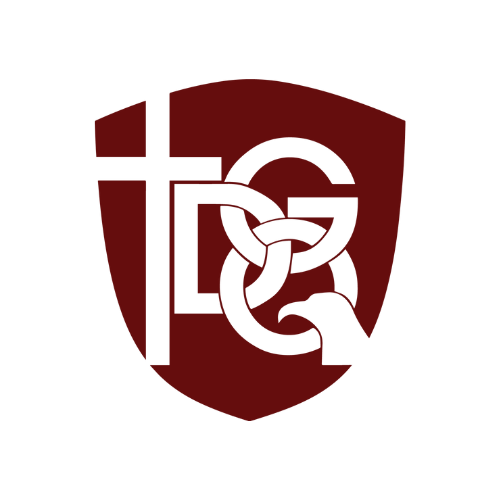Home › Academics › Curriculum › World Languages Overview
World Languages Curriculum Overview
If you talk to a man in a language he understands, that goes to his head. If you talk to him in his language, that goes to his heart. — Nelson Mandela
GDQ’s emphasis on a kingdom-focused education prepares its students to serve the Lord in society with excellence by encouraging in them respect and appreciation for cultural diversity. The Great Commission (Matthew 28:19–20) commands that we go to people of all languages. By connecting with and loving their neighbor in a foreign tongue, GDQ students live out the school’s vision statement to have “maximum influence for the glory of God in their lifetime.”
GDQ’s language program includes instruction in Albanian, French and Spanish and aims to foster the following outcomes for students engaged in the learning process:
- Ability to communicate fluently in a number of different contexts, both informal and formal.
- Develop an appreciation for other languages, cultures and speakers of other languages, fostering a desire to learn other foreign languages.
- Develop equal proficiency in all four language skills: reading, writing, speaking and reading.
- Develop cultural awareness of countries where the language is spoken, not only France, Spain and Albania.
- Experience language learning as enjoyable and intellectually stimulating.
- Complement other areas of study with skills of a more general application: analysis, critical thinking, memorizing, drawing of inferences.
- Feel inspired to visit the country or countries where the language is spoken, potentially by means of a mission visit. In the case of Albanian language, students will gain confidence to actively use the language they have obtained in ‘real-life’ situations.
Lower School World Languages Program
GDQ’s world language learning curriculum begins in grade 2. Because of the various languages spoken by our students, we have assessed that it is more beneficial for our Pre-1st and grade one students to focus their attention solely on English in order to provide them a firmer foundation for their academic learning at GDQ. Students in grades 2 through 5 have three avenues in regards to language learning.
First, GDQ is conscious of children needing to acquire sufficient fluency in English in order for them to acquire as fully as possible the English medium education GDQ offers. For this reason all non-native English speaking students are assessed and tracked for proficiency levels in English. The EAL department will determine a student’s need for EAL intervention.
Second, GDQ actively seeks to encourage children to continue learning their heart language. For this reason, parents are given opportunity to come into school at the scheduled language time to work with their children.
Third, GDQ provides students opportunity to learn the language of the host country.
Middle School World Languages Program
Middle school language studies include Albanian, Korean, and EAL. Native English-speaking students will have Albanian through grade 8. Non-native English-speaking students are first assessed and tracked for proficiency levels in English. The EAL department will determine a student’s need for EAL intervention and exit from the EAL program. Korean students who are not in the EAL intervention program may choose to study Korean.
The Albanian language program provides students an opportunity to develop skills in all four strands of language communication: listening, speaking, reading, and writing, using a blend of resources to stay motivated and challenged. Instruction and extensive practice in grammar are integral to the program.
High School World Languages Program
GDQ requires all high school graduates to successfully complete two years of a modern world language. Students may choose to study French or Spanish. Both programs are four-year programs, allowing students to begin their studies with little to no knowledge. The fourth year is an AP course.
The high school program aims to develop students’ knowledge, understanding, and use of the target language in the four areas of communication – listening, speaking, reading, and writing. Both language studies take an interactive and thematic approach, immersing students in an intuitive class environment to facilitate learning. Emphasis is placed on gaining insight into the countries and communities where the target language is spoken, encouraging an appreciation of language as a means of sharing God’s good news with people of other nationalities and contexts, developing a positive attitude toward modern foreign language learning, and acquiring a foundation for further study of the target language or another language.
